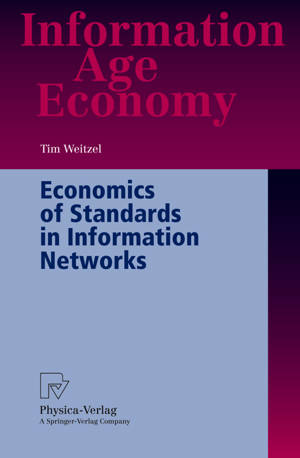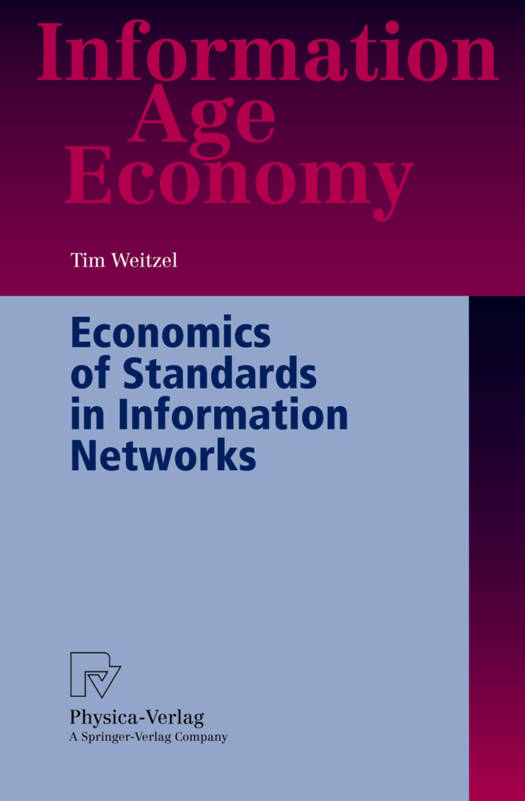
- Retrait gratuit dans votre magasin Club
- 7.000.000 titres dans notre catalogue
- Payer en toute sécurité
- Toujours un magasin près de chez vous
- Retrait gratuit dans votre magasin Club
- 7.000.0000 titres dans notre catalogue
- Payer en toute sécurité
- Toujours un magasin près de chez vous
Description
Standards play a prominent role in systems characterized by interaction. In information systems, standards provide for compatibility and are a prerequisite for collaboration benefits. More generally speaking, standards constitute networks. In this work, a standardization framework based on an analysis of deficiencies of network effect theory and a game theoretic network equilibrium analysis is developed. Fundamental determinants of diffusion processes in networks (e.g. network topology, agent size, installed base) are identified and incorporated into a computer-based simulation model. As a result, typical network behaviour (specific diffusion patterns) can be explained and many findings from traditional network effect theory can be described as special cases of the model at particular parameter constellations (e.g. low price, high density). On this basis, solution strategies for standardization problems are developed, and a methodological path towards a unified theory of networks is proposed.
Spécifications
Parties prenantes
- Auteur(s) :
- Editeur:
Contenu
- Nombre de pages :
- 292
- Langue:
- Anglais
- Collection :
Caractéristiques
- EAN:
- 9783790800760
- Date de parution :
- 01-12-03
- Format:
- Livre broché
- Format numérique:
- Trade paperback (VS)
- Dimensions :
- 156 mm x 234 mm
- Poids :
- 444 g

Les avis
Nous publions uniquement les avis qui respectent les conditions requises. Consultez nos conditions pour les avis.






